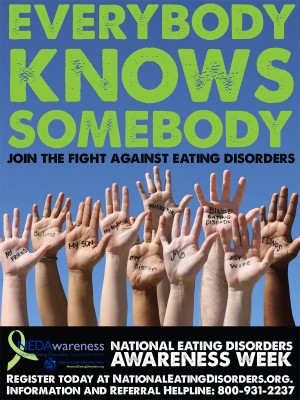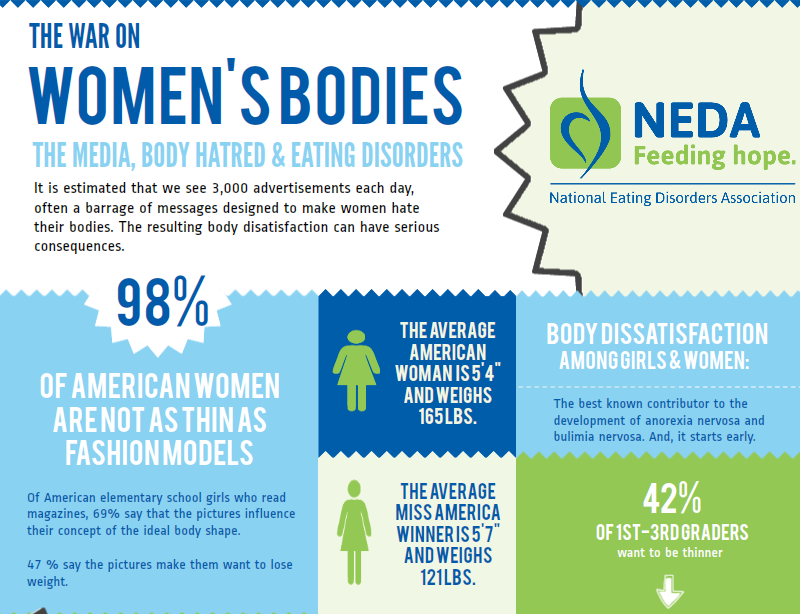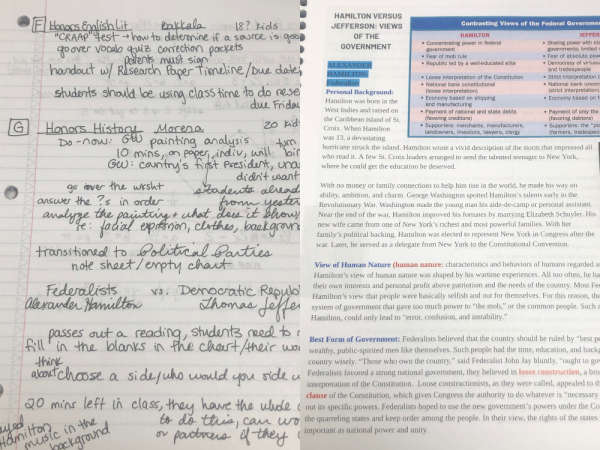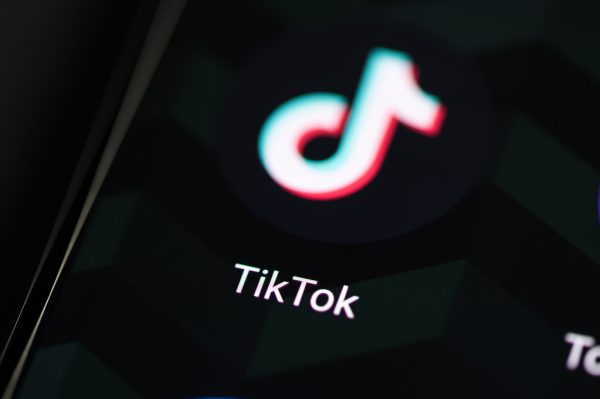A spotlight on eating disorders and help
Google image/Creative Commons license
The last week of February was NEDAwareness week.
“I had no idea.”
That was the theme of the National Eating Disorders Association’s NEDAwareness Week 2015. In the last week of February, NEDA publicized a wealth of educational materials dealing with eating disorders in an effort to heighten understanding.
Using the Twitter hashtag #NEDAwareness and hosting a walk in San Diego on Feb. 28, the organization continued to raise its profile.
Eating Disorder Awareness Week targets the need to educate families and teenagers about warning signs and to inform them about various ways to get help.
Its goal this year is to stop the phrase “I had no idea” from becoming an excuse.
Part of the problem is there are many types of eating disorders (EDs). The public primarily is aware of four listed in the Diagnostic and Statistical Manual of Mental Disorders (DSM-V; the go-to source among mental health professionals): anorexia nervosa, bulimia nervosa, binge eating disorder (BED) and other specified feeding and eating disorders (OSFED; previously known as EDNOS).
For anyone who fears that they, or someone they are concerned about, are suffering from an ED, all of the primary symptoms and warning signs can be found on the NEDA website. It is important to note that just because someone is not necessarily underweight, it does not invalidate the disorder.
According to the National Association of Anorexia Nervosa and Associated Disorders, more than 20 million people suffer from some type of ED in the United States alone. Half of those people also meet the criteria for depression.
Together, these disorders have the highest mortality rates among all mental disorders, according to NEDA.
The reason why NEDA’s mission is so important is that, according to estimates, only 1 in 10 people suffering from an ED will get the help they need.

A goal is to eliminate “I had no idea” as an excuse for failing to get help.
What is the source of the problem? Unrealistic standards of beauty, which are reinforced by media and advertisers, are a primary cause.
Isabel Texeira, a high school freshman from Weston, explained how her bulimia can be affected by the media.
“The idea that there is one perfect body has been a truth for me since a very young age,” Isabel said. “In the media there is also the idea that people who are overweight are lazy or not smart, and this is constantly portrayed in movies or on TV.”
Anorexia survivor Danielle Tuohy of Kent, England agreed that the media can be a negative factor.
“It’s like if you look at a magazine and the Photoshop makes [models] bonier and slimmer than they are,” Danielle said in a telephone interview with The AMSA Voice. “Girls think that’s what bodies are supposed to look like … [and they might] look up diets to be thinner. That’s where it can spiral.”
Many television shows seem almost to “romanticize” eating disorders, such as “Skins,” a teen drama that aired from 2007 to 2013 in the United Kingdom. In the first generation of the show’s cast, a character named Cassie Ainsworth struggled with anorexia and, as is seemingly the case with TV shows and movies, she was given a clichéd happy ending.
Other social media websites such as Instagram and Tumblr can negatively affect teens. Hashtags such as “thinspo” and “ana” (short for “thin inspiration” and “anorexia”) can be utilized as triggers and “motivation” to fall back into or begin unhealthy behaviors.
It’s not just the everyday teen that can be susceptible to these negative influences, either—athletes are particularly vulnerable.
Amanda Stahl, a varsity track athlete at AMSA, has encountered many struggling runners.
“Sports put an emphasis on a specific body shape, such as in running, figure skating, wrestling, and dancing,” Amanda said. “The quickest way to get lean is to diet; however, dieting can easily turn sour when time is not in the person’s favor.”
Wrestling can be an overlooked sport, considering its participants are mainly boys and eating disorders are (often mistakenly) associated only with girls, but wrestling is divided into strict weight classes and maintaining a specific weight can be very difficult, particularly as athletes age and their bodies change.

Pop star Demi Lovato has advocated for eating disorders awareness.
NEDA estimates that a third of males and almost two-thirds of females in weight-specific sports at the Division I college level are affected by an eating disorder.
Hudson High School junior Angie Cooper competes in a field in which participants are highly susceptible to an ED: ballet.
“It doesn’t matter your age or sex—eating disorders continue to happen,” Angie said.
But there is light in a seemingly dark world.
Media don’t always portray eating disorders in a romanticized or inappropriate way. Demi Lovato, a pop music sensation who has suffered from an ED in the past, regularly advocates for awareness through Twitter.
The bottom line is this: People everywhere are encouraged to get help if they are struggling with an ED. Jeanine LeDoux, an outpatient nutritionist in Worcester, counsels people who are concerned with their eating habits.
“I always urge anyone who thinks they are struggling with what could be disordered eating of any kind to try to find out what their resources are in their area,” Ms. LeDoux said. “Just reaching out in some way to get some advice and guidance, I think, is the very first step.”
Soph O’Sullivan, an 18-year-old ED survivor from London, offered some important advice to anyone who could be suffering.
“It’s vital to get [help] early,” Soph said in a telephone interview. “To beat your demons you need to put your hands up and admit you need help, because it will look up.”
The next time you’re tempted to say “I had no idea,” think it over.
Help is never far away.

Elizabeth Goldberg is currently a sophomore at AMSA. Her favorite participation sports are basketball and figure skating. Elizabeth uses her free time...






